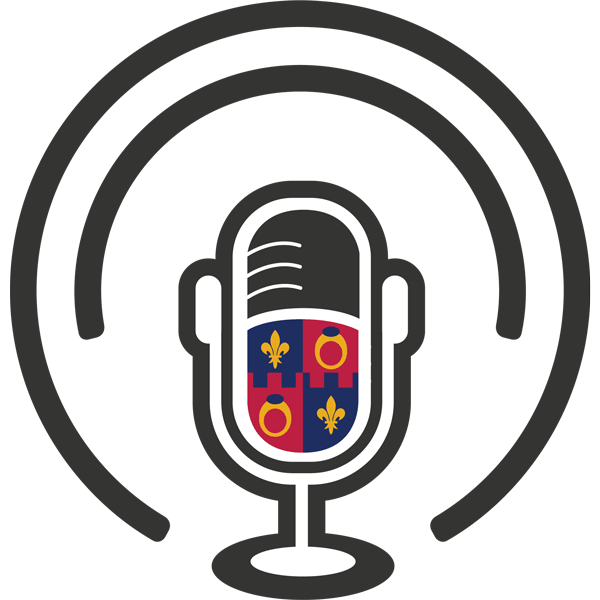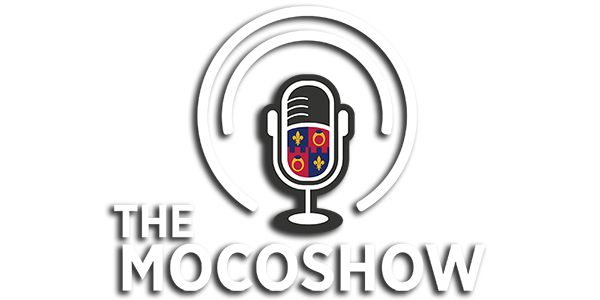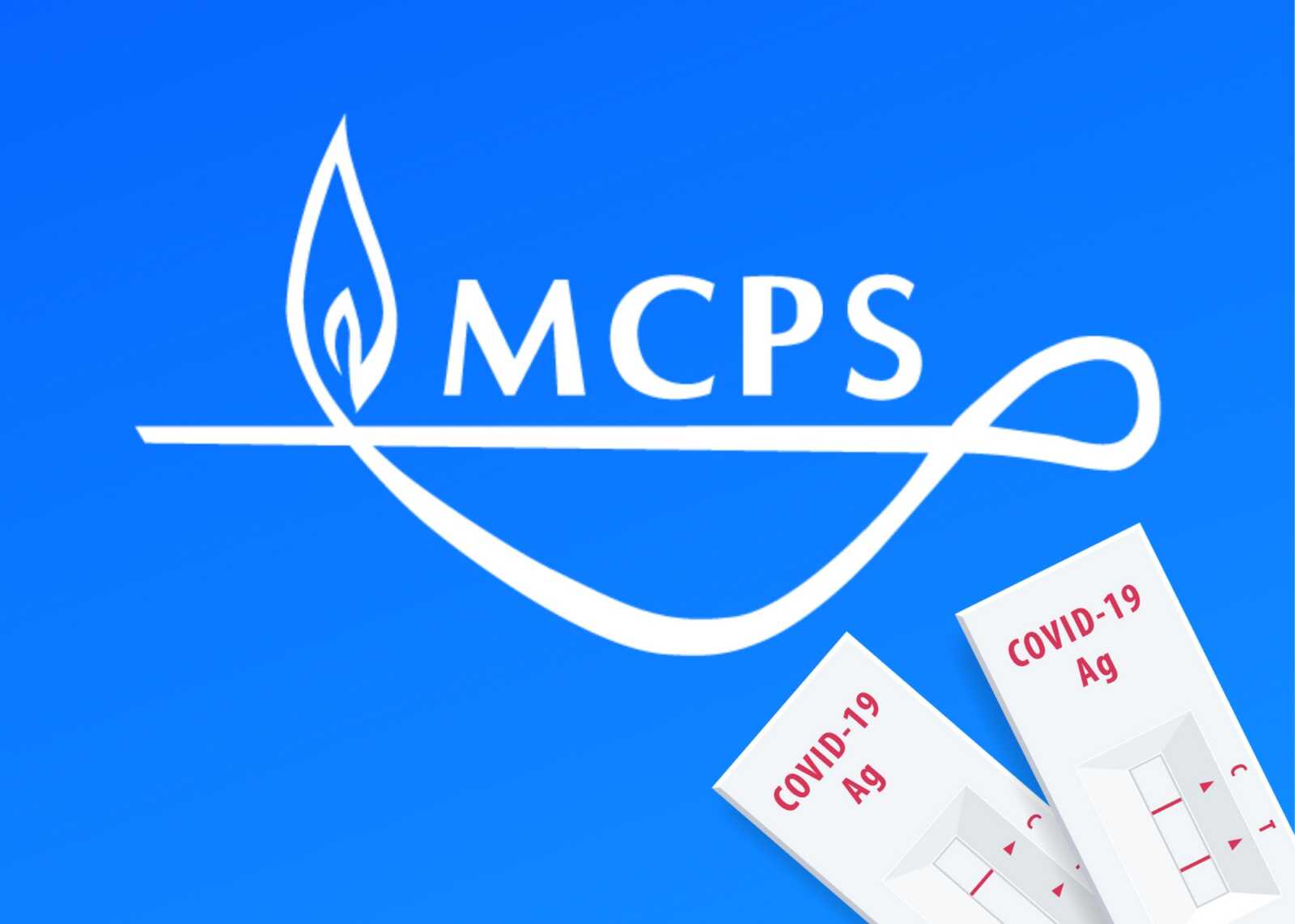
The following message was released by MCPS Medical Officer Patricia Kapunan, M.D., MPH on Friday, September 16:
“Dear MCPS Families,
Here is an update on COVID-19 as we wrap-up the third week of school. Though the Centers for Disease Control and Prevention (CDC) COVID-19 Community Risk Level for Montgomery County is “low,” we are seeing an expected modest rise in positive COVID-19 cases reported to MCPS, after summer travel and the return to school. The highest number of positive tests so far were reported last week, after Labor Day weekend. Fortunately, fewer positive cases are being reported this week.
Thank you to our staff and families for continuing to test when they have symptoms or after a possible exposure, for using the online tool to report positive COVID-19 test results, and for following CDC isolation guidelines. Core health strategies like staying home when sick and good hand-washing are also important for limiting the spread of infection. As our schedules get busier, remember the basics—rest, good nutrition and staying active all help to keep students healthy and ready to learn.
Please remember that while masking is optional, masks are temporarily required in some situations:
-
Students presenting to the health room for evaluation of possible COVID-19 symptoms.
-
Staff or students who test positive for COVID-19 at school or work.
-
Staff or students with COVID-19 infection, after completing five days of isolation, who feel well enough to return to school or work (masks are worn until day 10).
-
Individuals exposed during an outbreak, as an alternative to 10-day quarantine. Exposed staff and students do not need to quarantine as long as they are symptom free, and can safely wear a mask for 10 days after the exposure.
Children who cannot wear a mask safely due to health considerations, young age or other factors, may need other preventive strategies in an outbreak. At any risk level, we respect an individual’s decision to wear a mask for their own health reasons or to protect another person.
Vaccination is still our most effective tool for preventing serious complications or death due to COVID-19, and can decrease the risk of becoming infected. The new updated COVID-19 boosters that also include protection against the latest Omicron subvariants are now available at county-sponsored clinics, including school-based vaccine clinics or at retail pharmacies or other locations.
Vigilance, preparation and prevention are necessary to support our commitment to safe, in-person learning. We continue to monitor data trends closely at the county and school levels with our public health partners, and encourage everyone to engage in prevention measures to limit the spread of COVID-19.
Thank you again for your help and commitment to keeping our MCPS community healthy. Enjoy the upcoming weekend!
Sincerely,
Patricia Kapunan, M.D., MPH
MCPS Medical Officer”
Per the State or Maryland:
Booster Shots With Added Protection Now Available At More Than 850 Pharmacies, Clinics, and Local Health Departments Statewide
State Ramps Up Call- and Text-Based Outreach, Will Launch “Fall Checklist” PSAs to Encourage Marylanders to Get Booster and Flu Shot Simultaneously
Governor, First Lady, and Health Secretary Receive New Bivalent Booster
ANNAPOLIS, MD—Governor Larry Hogan today announced that the state continues to expand its COVIDReady campaign to encourage Marylanders to maximize their protection against COVID-19 and the flu this fall and winter.
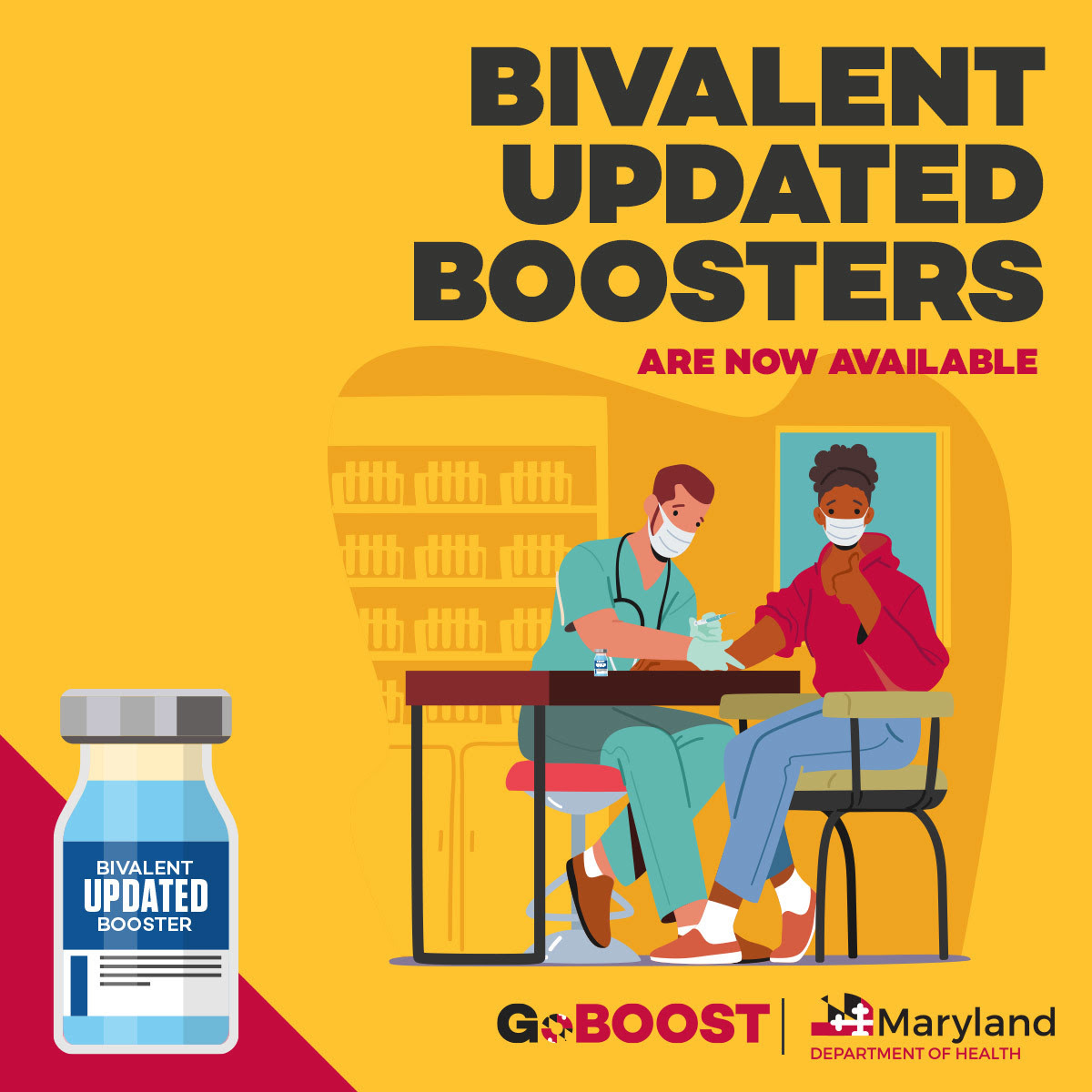
The bivalent boosters—which contain “tools” (spike proteins of the virus) to target the original COVID-19 virus as well as its omicron variants—are available at more than 850 pharmacies, clinics, and local health departments statewide. Find a clinic at covidvax.maryland.gov or by calling 1-855-MDGOVAX (1-855-634-6829).
Governor, First Lady, and Health Secretary Receive Bivalent Booster. Governor Hogan and First Lady Yumi Hogan recently received their single-dose COVID-19 bivalent booster shots. At a CVS Pharmacy in Laurel, Maryland Department of Health (MDH) Secretary Dennis Schrader received his annual flu shot along with his bivalent booster.
Fall Flu-Booster PSAs. In the coming weeks, MDH will launch new “Fall Checklist” public service announcements encouraging Marylanders to get their COVID-19 bivalent booster and flu shots simultaneously. Pharmacies are able to administer both at the same time, and it is anticipated that providers will hold joint vaccine clinics.
GoVax Call Center Outreach. The state’s GoVax Call Center—available 7 days a week—has begun call- and text-based outreach to eligible Marylanders. The call center continues to offer individuals homebound vaccination options and rideshare options for individuals with transportation access issues. The state also pushed out an MDReady text alert about booster availability and eligibility.
Updated “Are You Up to Date?” Portal. MDH has updated its “Are You Up-To-Date?” portal, which allows you to check your vaccination eligibility within seconds.
Ongoing Partnership With Nursing Homes. MDH clinical teams continue to offer technical assistance to skilled nursing facilities and guidance to assist them with their own clinics. Vaccines and boosters are delivered directly to facilities that request these resources. Maryland ranks ahead of 46 other states for people 65 and older getting their second booster.
COVIDReady Maryland. In addition to boosting eligible populations, the COVIDReady initiative emphasizes expanding ‘Test to Treat’ provider infrastructure, maximizing utilization of therapeutics, enhanced awareness and outreach, and maintaining a state of readiness for waves and variants.
-###-
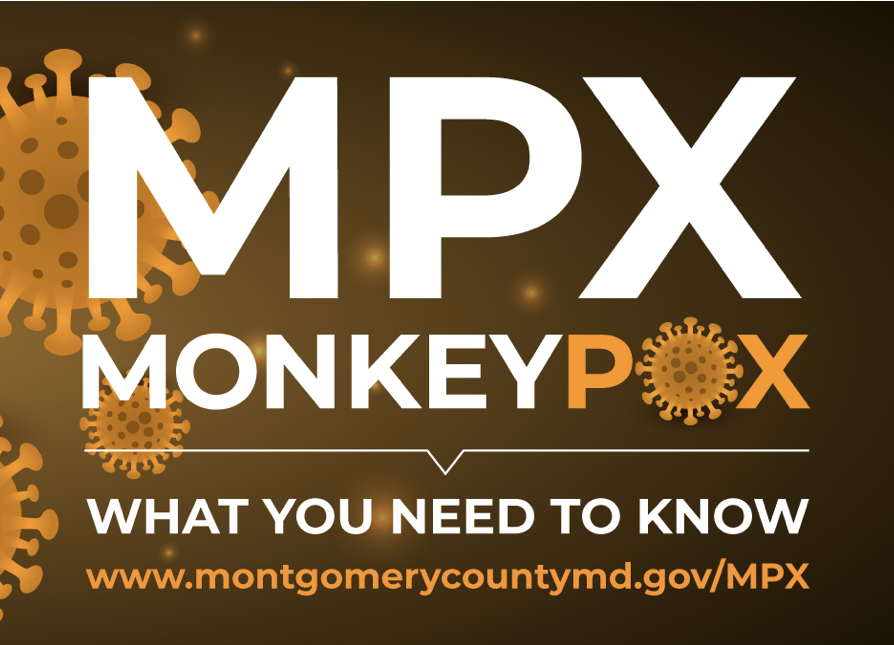
Per Montgomery County:
For Immediate Release: Tuesday, September 6, 2022
Montgomery County health officials, in partnership with the Latino Health Initiative, will host a virtual monkeypox town hall meeting from 6-7:30 p.m. on Monday, Sept. 12. The meeting is the second in a series planned by the County. This one will focus on the Latino community.
Panelists in the town hall will include the Latino Health Initiative’s Luis Aguirre, Proyecto Salud’s Executive Director Cesar Palacios, Acting County Health Officer James Bridgers and the County Department of Health and Human Services’ Director Raymond Crowel. The panel discussion will be moderated by Lorna Virgilí, the County’s Hispanic public information officer.
The panelists will provide an update on the current monkeypox situation in Montgomery County and Maryland. They will provide information on the County’s monkeypox vaccine program and answer questions about prevention and treatment.
The virtual town hall will be hosted on Zoom. It will be streamed live on the County’s Facebook page and also simulcast on County Cable Montgomery (CCM — Channel 6 and HD 996 on Comcast, Channel 6 and HD 1056 on RCN and Channel 30 on Verizon).
Registration for the Zoom meeting is required. Questions can be submitted anonymously prior to the meeting. There will be an opportunity to ask questions virtually at the meeting.
Register for the meeting at https://bit.ly/3QkxfvS.
For more information, visit the County’s monkeypox website or email [email protected].
# # #
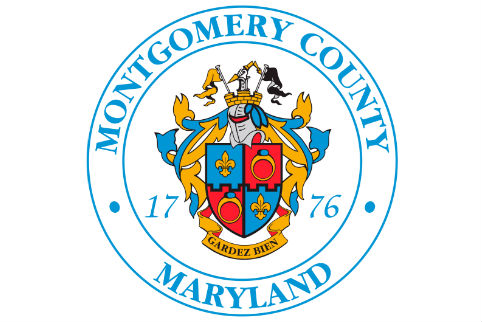
Per Montgomery County:
Montgomery County Executive Marc Elrich announced today that the County will provide $1 million to community-based organizations providing direct services that support the right to access abortion care in the County. Elrich was joined by Executive Director of the Commission for Women Jodi Finkelstein, Maryland Delegate Jheanelle Wilkins, Maryland Delegate Sara Love, Director of the County’s Department of Health and Human Services Dr. Raymond Crowel, and reproductive health rights advocate and community activist Roz Jonas.
Resolution 19-1357 provides grant awards from $50,000 to a maximum of $500,000 for an up to one year (12 month) performance period for the County’s FY 2023 Abortion, Reproductive Health, and Related Services Access (ARHRSA) grants program. The target population for the grants are organizations that help women seeking access to abortion, reproductive health, and related services as well as the staff providing these services.
“As soon as the draft opinion that would overturn Roe v. Wade was leaked in May, we knew that our reproductive rights and abortion providers were going to need additional support and we announced our intention to provide $1 million in County aid through grants to these organizations,” said County Executive Erich. “I am very pleased that we were able to get this grant process up and running so quickly and appreciate the work and input of the County Council, the Department of Health and Human Services and our new Office of Grants Management. These funds will help the women served by caring and compassionate organizations who are protecting their rights, their health, and their choices.”
The grants will be administered by the County’s Department of Health and Human Services and the Office of Grants Management. The grants will be provided to programs that provide direct services and/or support that address at least two of the following funding areas:
- Assisting with wraparound services to those who are accessing abortion services;
- Providing grants to organizations in the County that provide abortion services, or that refer patients to abortion services as part of comprehensive family planning and reproductive health education;
- Providing aid to organizations that are fighting legal battles on behalf of those seeking access to abortion services;
- Security for providers who offer direct abortion services or referral to abortion services. Providers may require increased safety or security measures as a result of heightened tensions in the political and civic environment;
- Support for organizations and providers who offer direct abortion services or refer to abortion services to begin practicing in Montgomery County. Examples include assistance with relocation costs, training costs for new providers, or other startup costs; and
- Grants to facilitate providers of abortion services to offer reduced cost, low cost, or no cost abortion services to women who have financial hardships, to ensure equitable access to abortion services.
“As reproductive rights are being systematically dismantled at the Federal level and in states across the nation we in Montgomery County are standing firm in our commitment to protect the rights of women and pregnant people to make their own healthcare decisions,” said County Councilmember Andrew Friedson. “Restricting access to comprehensive reproductive healthcare does not stop abortions from happening, but instead makes them unsafe, especially for women of color and the LGBTQ+ community.
“This new source of funding is further proof that Maryland and Montgomery County continue to be leaders in protecting abortion access. The grants announced today will support health agencies that provide comprehensive reproductive health care to those in need, as well as those organizations fighting legal battles on behalf of abortion-seeking patients. This announcement is a welcome follow-up to my legislation, the Abortion Care Access Act, which solves the critical shortage of abortion providers in the state, invests in clinical training opportunities for reproductive healthcare providers, and makes access to care more affordable through insurance providers and Medicaid,” said Maryland Delegate Ariana Kelly. “I am so proud to work alongside County Executive Elrich, the Montgomery County Council and others in our community to ensure that Marylanders will have adequate access to care regardless of what happens on the national level.”
Grant applicants should directly address the priority areas in their proposal. Service providers do not need a nonprofit designation to apply but all services must take place within Montgomery County. Organizations can apply independently or in collaboration with other groups. County funding cannot be used to supplant other funding for already planned services. Applications are due by 9 a.m. on Monday, Oct.10.
A virtual information session will be held on Friday, Sept. 9 from 3:30 to 5 p.m. The event will be recorded and publicly posted for individuals who missed the event or wish to review the information. Full program details, the online application, and information session details (as well as recording) are available on the Office of Grants Management website.
Grant applications will be reviewed by an independent committee organized by the Office of Grants Management made up of neutral, qualified individuals from Montgomery County Government selected for their experience in the grant program’s subject area, grants administration, or project management. Panel members will review and score applicant proposals on a 100-point scale based on the criteria and priorities established in County Resolution 19-1357 with cumulative ranking determining the final awards.
Email Rafael Pumarejo Murphy, director of the Office of Grants Management at [email protected] for questions about the application process or call 240-777-2775.
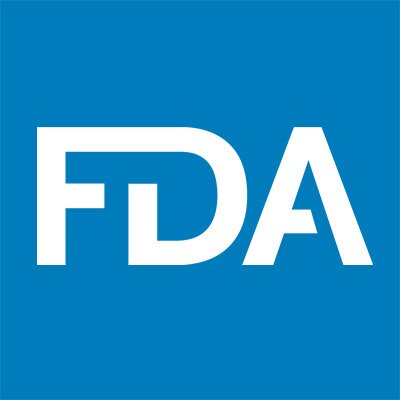
On Wednesday, the U.S. Food and Drug Administration authorized the Moderna and Pfizer-BioNTech Bivalent COVID-19 vaccines to be used as a booster dose. According to the FDA, these vaccines “include an mRNA component of the original strain to provide an immune response that is broadly protective against COVID-19 and an mRNA component in common between the omicron variant BA.4 and BA.5 lineages to provide better protection against COVID-19 caused by the omicron variant.”
Regarding availability in Montgomery County, the Department of Health and Human Services tweeted: “Once the vaccines receive final approval from @CDCgov, we must wait for vaccine supply and written guidance from @MDHealthDept. We will keep you posted.”
Per the FDA:
Today, the U.S. Food and Drug Administration amended the emergency use authorizations (EUAs) of the Moderna COVID-19 Vaccine and the Pfizer-BioNTech COVID-19 Vaccine to authorize bivalent formulations of the vaccines for use as a single booster dose at least two months following primary or booster vaccination. The bivalent vaccines, which we will also refer to as “updated boosters,” contain two messenger RNA (mRNA) components of SARS-CoV-2 virus, one of the original strain of SARS-CoV-2 and the other one in common between the BA.4 and BA.5 lineages of the omicron variant of SARS-CoV-2.
The Moderna COVID-19 Vaccine, Bivalent, is authorized for use as a single booster dose in individuals 18 years of age and older. The Pfizer-BioNTech COVID-19 Vaccine, Bivalent, is authorized for use as a single booster dose in individuals 12 years of age and older.
The monovalent COVID-19 vaccines that are authorized or approved by the FDA and have been administered to millions of people in the United States since December 2020 contain a component from the original strain of SARS-CoV-2.
What you need to know:
- The authorized bivalent COVID-19 vaccines, or updated boosters, include an mRNA component of the original strain to provide an immune response that is broadly protective against COVID-19 and an mRNA component in common between the omicron variant BA.4 and BA.5 lineages to provide better protection against COVID-19 caused by the omicron variant.
- The BA.4 and BA.5 lineages of the omicron variant are currently causing most cases of COVID-19 in the U.S. and are predicted to circulate this fall and winter. In June, the agency’s Vaccines and Related Biological Products Advisory Committee voted overwhelmingly to include an omicron component in COVID-19 booster vaccines.
- For each bivalent COVID-19 vaccine, the FDA based its decision on the totality of available evidence, including extensive safety and effectiveness data for each of the monovalent mRNA COVID-19 vaccines, safety and immunogenicity data obtained from a clinical study of a bivalent COVID-19 vaccine that contained mRNA from omicron variant BA.1 lineage that is similar to each of the vaccines being authorized, and nonclinical data obtained using a bivalent COVID-19 vaccine that contained mRNA of the original strain and mRNA in common between the BA.4 and BA.5 lineages of the omicron variant.
- Based on the data supporting each of these authorizations, the bivalent COVID-19 vaccines are expected to provide increased protection against the currently circulating omicron variant. Individuals who receive a bivalent COVID-19 vaccine may experience side effects commonly reported by individuals who receive authorized or approved monovalent mRNA COVID-19 vaccines.
- With today’s authorization, the monovalent mRNA COVID-19 vaccines are not authorized as booster doses for individuals 12 years of age and older.
- The agency will work quickly to evaluate future data and submissions to support authorization of bivalent COVID-19 boosters for additional age groups as we receive them.
Who is eligible to receive a single booster dose and when:
- Individuals 18 years of age and older are eligible for a single booster dose of the Moderna COVID-19 Vaccine, Bivalent if it has been at least two months since they have completed primary vaccination or have received the most recent booster dose with any authorized or approved monovalent COVID-19 vaccine.
- Individuals 12 years of age and older are eligible for a single booster dose of the Pfizer-BioNTech COVID-19 Vaccine, Bivalent if it has been at least two months since they have completed primary vaccination or have received the most recent booster dose with any authorized or approved monovalent COVID-19 vaccine.
“The COVID-19 vaccines, including boosters, continue to save countless lives and prevent the most serious outcomes (hospitalization and death) of COVID-19,” said FDA Commissioner Robert M. Califf, M.D. “As we head into fall and begin to spend more time indoors, we strongly encourage anyone who is eligible to consider receiving a booster dose with a bivalent COVID-19 vaccine to provide better protection against currently circulating variants.”
The Moderna COVID-19 Vaccine, Bivalent and the Pfizer-BioNTech COVID-19 Vaccine, Bivalent contain mRNA from the SARS-CoV-2 virus. The mRNA in these vaccines is a specific piece of genetic material that instructs cells in the body to make the distinctive “spike” protein of the original virus strain and the omicron variant lineages BA.4 and BA.5. The spike proteins of BA.4 and BA.5 are identical.
“The FDA has been planning for the possibility that the composition of the COVID-19 vaccines would need to be modified to address circulating variants. We sought input from our outside experts on the inclusion of an omicron component in COVID-19 boosters to provide better protection against COVID-19. We have worked closely with the vaccine manufacturers to ensure the development of these updated boosters was done safely and efficiently. The FDA has extensive experience with strain changes for annual influenza vaccines. We are confident in the evidence supporting these authorizations,” said Peter Marks, M.D., Ph.D., director of the FDA’s Center for Biologics Evaluation and Research. “The public can be assured that a great deal of care has been taken by the FDA to ensure that these bivalent COVID-19 vaccines meet our rigorous safety, effectiveness and manufacturing quality standards for emergency use authorization.”
For each of the bivalent COVID-19 vaccines authorized today, the FDA evaluated immunogenicity and safety data from a clinical study of a booster dose of a bivalent COVID-19 vaccine that contained a component of the original strain of SARS-CoV-2 and a component of omicron lineage BA.1. The FDA considers such data as relevant and supportive of vaccines containing a component of the omicron variant BA.4 and BA.5 lineages. Furthermore, data pertaining to the safety and effectiveness of the current mRNA COVID-19 vaccines, which have been administered to millions of people, including during the omicron waves of COVID-19, contributed to the agency’s evaluation.
Data Supporting the Moderna COVID-19 Vaccine, Bivalent Authorization
To evaluate the effectiveness of a single booster dose of the Moderna COVID-19 Vaccine, Bivalent for individuals 18 years of age and older, the FDA analyzed immune response data among approximately 600 individuals 18 years of age and older who had previously received a two-dose primary series and one booster dose of monovalent Moderna COVID-19 Vaccine. These participants received a second booster dose of either the monovalent Moderna COVID-19 Vaccine or Moderna’s investigational bivalent COVID-19 vaccine (original and omicron BA.1) at least 3 months after the first booster dose. After 28 days, the immune response against BA.1 of the participants who received the bivalent vaccine was better than the immune response of those who had received the monovalent Moderna COVID-19 Vaccine.
The safety of a single booster dose of the Moderna COVID-19 Vaccine, Bivalent for individuals 18 years of age and older is supported by safety data from a clinical study which evaluated a booster dose of Moderna’s investigational bivalent COVID-19 vaccine (original and omicron BA.1), safety data from clinical trials which evaluated primary and booster vaccination with the monovalent Moderna COVID-19 Vaccine, and postmarketing safety data with the monovalent Moderna COVID-19 Vaccine.
The safety data accrued with the bivalent vaccine (original and omicron BA.1) and with the monovalent Moderna COVID-19 Vaccine are relevant to the Moderna COVID-19 Vaccine, Bivalent because these vaccines are manufactured using the same process.
The clinical study that evaluated the safety of a booster dose of the bivalent vaccine (original and omicron BA.1) included approximately 800 participants 18 years of age and older who had previously received a two dose primary series and one booster dose of the monovalent Moderna COVID-19 Vaccine, and then at least 3 months later, received a second booster dose with either the monovalent Moderna COVID-19 Vaccine or Moderna’s investigational bivalent COVID-19 vaccine (original and omicron BA.1).
Among the study participants who received the bivalent vaccine, the most commonly reported side effects included pain, redness and swelling at the injection site, fatigue, headache, muscle pain, joint pain, chills, swelling of the lymph nodes in the same arm of the injection, nausea/vomiting and fever.
Data Supporting the Pfizer-BioNTech COVID-19 Vaccine, Bivalent Authorization
To evaluate the effectiveness of a single booster dose of the Pfizer-BioNTech COVID-19 Vaccine, Bivalent for individuals 12 years of age and older, the FDA analyzed immune response data among approximately 600 adults greater than 55 years of age who had previously received a 2-dose primary series and one booster dose with the monovalent Pfizer-BioNTech COVID-19 Vaccine. These participants received a second booster dose of either the monovalent Pfizer-BioNTech COVID-19 Vaccine or Pfizer-BioNTech’s investigational bivalent COVID-19 vaccine (original and omicron BA.1) 4.7 to 13.1 months after the first booster dose. After one month, the immune response against BA.1 of the participants who received the bivalent vaccine was better than the immune response of those who had received the monovalent Pfizer-BioNTech COVID-19 Vaccine.
The safety of a single booster dose of the Pfizer-BioNTech COVID-19 Vaccine, Bivalent for individuals 12 years of age and older is based on safety data from a clinical study which evaluated a booster dose of Pfizer-BioNTech’s investigational bivalent COVID-19 vaccine (original and omicron BA.1), safety data from clinical trials which evaluated primary and booster vaccination with the monovalent Pfizer-BioNTech COVID-19 Vaccine, and postmarketing safety data with the monovalent Pfizer-BioNTech COVID-19 Vaccine.
The safety data accrued with the bivalent vaccine (original and omicron BA.1) and with the monovalent Pfizer-BioNTech COVID-19 Vaccine are relevant to Pfizer-BioNTech COVID 19 Vaccine, Bivalent because these vaccines are manufactured using the same process.
The clinical study that evaluated the safety of a booster dose of the bivalent vaccine (original and omicron BA.1) included approximately 600 participants greater than 55 years of age who had previously received a 2-dose primary series, one booster dose of the monovalent Pfizer-BioNTech COVID-19 Vaccine, and then 4.7 to 13.1 months later, received a second booster dose of either the monovalent Pfizer-BioNTech COVID-19 Vaccine or Pfizer-BioNTech’s investigational bivalent COVID-19 vaccine (original and omicron BA.1). Among the study participants who received the bivalent vaccine, the most commonly reported side effects included pain, redness and swelling at the injection site, fatigue, headache, muscle pain, chills, joint pain, and fever.
The fact sheets for both bivalent COVID-19 vaccines for recipients and caregivers and for healthcare providers include information about the potential side effects, as well as the risks of myocarditis and pericarditis.
With today’s authorization, the FDA has also revised the EUA of the Moderna COVID-19 Vaccine and the Pfizer-BioNTech COVID-19 Vaccine to remove the use of the monovalent Moderna and Pfizer-BioNTech COVID-19 vaccines for booster administration for individuals 18 years of age and older and 12 years of age and older, respectively. These monovalent vaccines continue to be authorized for use for administration of a primary series for individuals 6 months of age and older as described in the letters of authorization. At this time, the Pfizer-BioNTech COVID-19 Vaccine remains authorized for administration of a single booster dose for individuals 5 through 11 years of age at least five months after completing a primary series of the Pfizer-BioNTech COVID-19 Vaccine.
The amendments to the EUAs were issued to Moderna TX Inc. and Pfizer Inc.
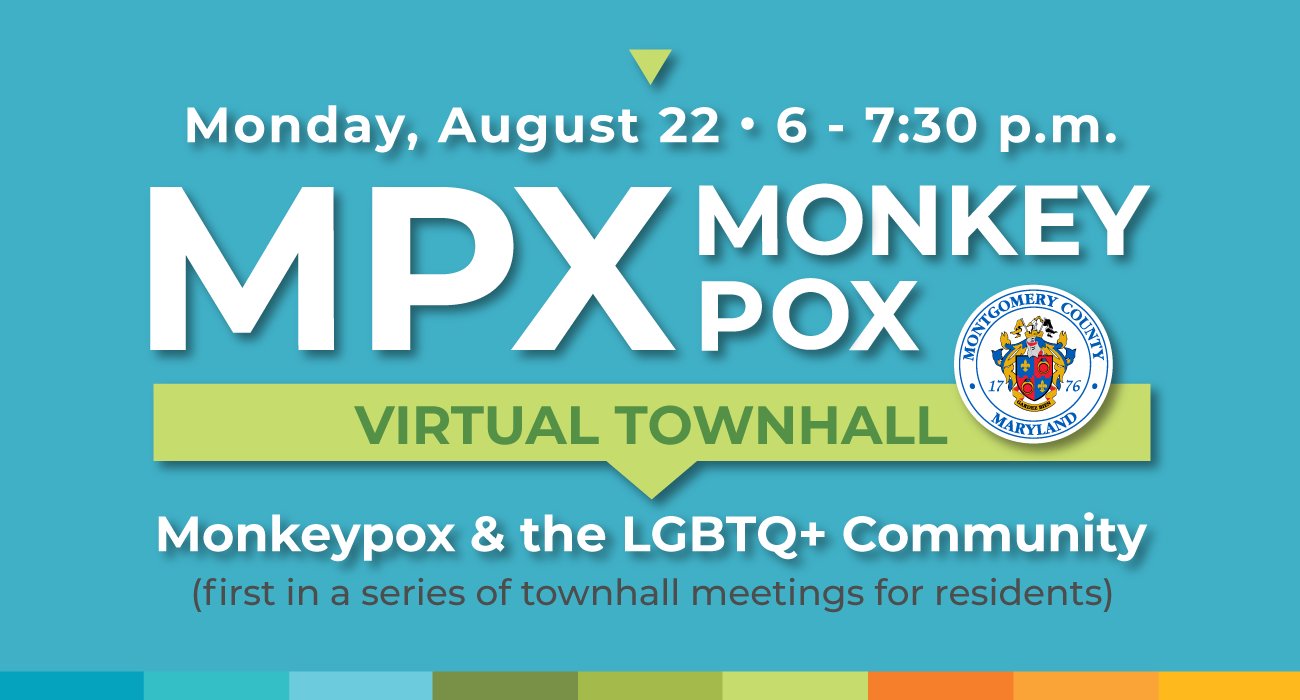
Per Montgomery County:
For Immediate Release: Monday, August 15, 2022
Montgomery County health officials, in partnership with County Council Vice President Evan Glass, will host a virtual town hall meeting from 6-7:30 p.m. on Monday, Aug. 22. The meeting, the first in a series planned by the County, will focus on Monkeypox and the LGBTQ+ community.
Panelists in the town hall will include Acting County Health Officer James Bridgers; Council Vice President Glass; the County’s LGBTQ+ Community Liaison Amena Johnson; infectious disease specialist Jessica Rosen, a physician with the County’s Department of Health and Human Services (DHHS); and DHHS Director Raymond Crowel.
The panelists will provide an update on the current Monkeypox situation in Montgomery County and Maryland, as well as share information on the County’s monkeypox vaccine program and answer questions about prevention and treatment.
The virtual town hall will be hosted on Zoom, will be streamed live on the County’s Facebook page. It also will be simulcast on County Cable Montgomery (CCM)–Comcast and RCN Channel 6 and HD 996 and 1056, respectively—and Channel 30 on Verizon. A recording of the event will be posted on the County’s Monkeypox website following the town hall.
Registration for the Zoom meeting is required. Questions can be submitted anonymously prior to the meeting. There also will be an opportunity to ask questions virtually at the meeting.
Register for the meeting at https://bit.ly/3QkxfvS.
For more information, visit the County’s Monkeypox website or email [email protected].

Montgomery County Health
Per Montgomery County:
For Immediate Release: Thursday, August 4, 2022
Montgomery County public health officials today launched an online preregistration survey for MPX vaccination appointments, while the County continues to have a limited supply of doses. The preregistration survey will be used to identify county residents 18 and older who are interested in receiving an MPX vaccination and are at risk for having been exposed to MPX in the past 4-14 days. Appointments are based on eligibility and vaccine supply and are not guaranteed.
As of Aug. 4, there are 6,617 confirmed MPX cases in the United States and 157 cases in Maryland.
“We know that residents are concerned about MPX, and we continue to support the Maryland Department of Health’s effort to receive more vaccine supply from the federal government,” said Dr. James Bridgers, acting County Health Officer. “As with the early days of the COVID-19 vaccination campaign, there is more demand for vaccination than there is supply. The preregistration system will help us identify those who are eligible for vaccination and provides us a way to contact them when vaccine doses are available.”
The online preregistration survey is currently available in English and Spanish on the County’s MPX website. Additional languages will be available by the end of the week. The website also includes information about symptoms and how to prevent MPX.
# # #
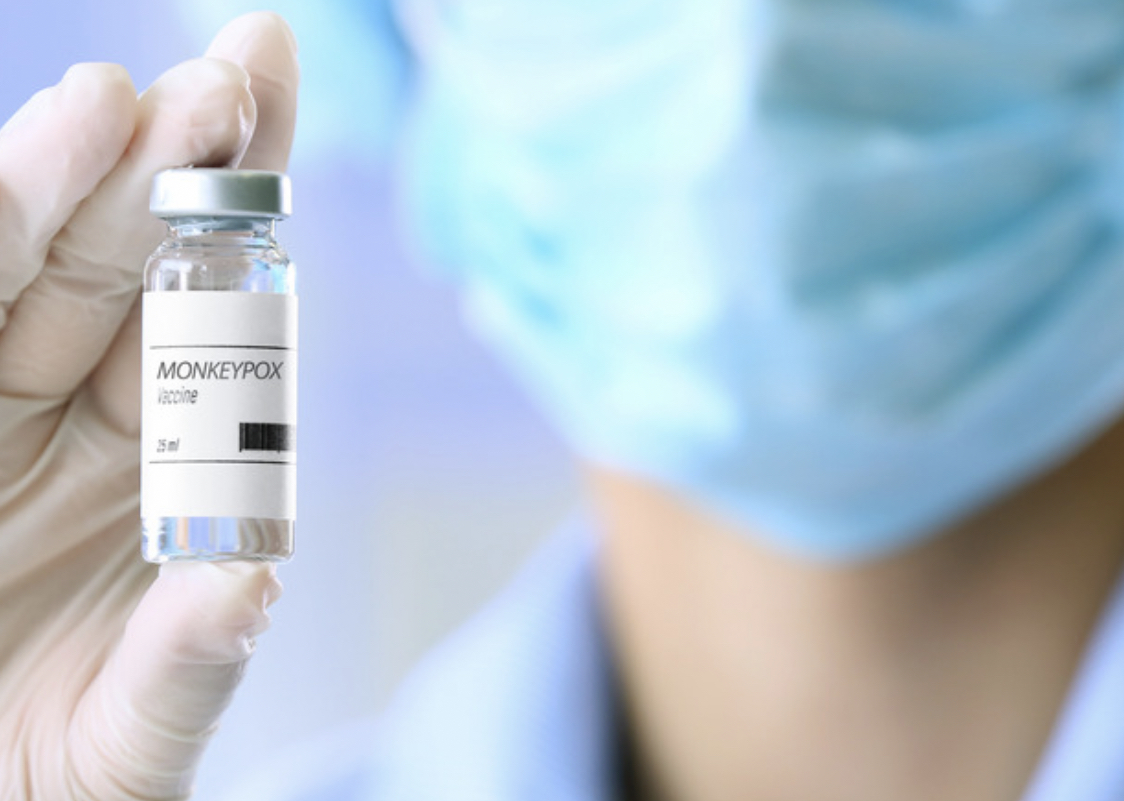
Per the State of Maryland:
ANNAPOLIS, MD—Governor Larry Hogan and the Maryland Department of Health (MDH) today issued an update on the state’s operational response to the human monkeypox outbreak, including efforts to make testing, vaccination, and public health resources widely available for high-risk populations.
“Since before our first monkeypox case was identified, the state has been mounting an aggressive response to this outbreak in coordination with local and regional partners,” said Governor Hogan. “While vaccine supply from the federal government is severely limited at this time, anyone who believes that they may need testing or treatment should contact their healthcare provider or local health department immediately. We will keep pressing the federal government to provide more vaccines to the states and do all we can to make resources available to those at risk.”
“We want to emphasize that the goal is limiting the spread of the virus and vaccinating those who may have been exposed in the prior two weeks,” said MDH Deputy Secretary for Public Health Services Dr. Jinlene Chan. “Due to the limited supply of the vaccine from the federal government, the state is working closely with local health partners to make doses available in a manner that focuses on locations that have case counts and higher-risk populations. We plan to expand access to the vaccine as more supply becomes available.”
Overview. Human monkeypox is a rare but serious illness predominantly caused by prolonged intimate physical contact. In May 2022, several clusters of human monkeypox cases were reported in countries that do not normally report human monkeypox, including the United States. Maryland’s first monkeypox case was announced on June 16, 2022. While anyone can get and spread monkeypox, the vast majority of cases have been reported among men who have sex with men.
Case Counts. As of today, the State of Maryland is reporting 129 lab-confirmed monkeypox cases, representing 2.2% of cases nationwide. At present, the majority of cases have been reported in the National Capital Region. Case counts are updated daily by the CDC.
Testing Capacity. Testing for monkeypox is available through commercial labs and the MDH state public health laboratory. It is not available to purchase off store shelves. Individuals who believe they were exposed to monkeypox or have an illness that could be monkeypox should contact their medical provider. People without a provider or insurance should visit health.maryland.gov/CSTIP/local to find contact information for their local health department. Healthcare providers should educate patients on home isolation while results are pending.
Vaccination Plan. To date, the federal government has allocated to MDH enough doses to vaccinate 3,202 patients with the two-dose Jynneos vaccine. Vaccine supply from the federal government remains limited, and additional supply may not be available until the fall. Based on CDC guidelines, state and local health officials are prioritizing vaccination courses for:
- Public Health Identified Close Contacts: Known close contacts who are identified by public health via case investigation, contact tracing, and risk exposure assessments.
- Occupational Exposure: Healthcare workers who may have been exposed to a known case and Laboratory Response Network (LRN) or other laboratory staff working directly with monkeypox testing.
In addition, state and local health officials will follow CDC guidelines to make vaccines available to the following categories of individuals based on supply:
- Self-Identified Partners of Cases: Individuals who are aware that one of their sexual partners from the past two weeks has been diagnosed with monkeypox.
- Affected Community Members: Individuals in high-risk populations who report any of the following in the past two weeks:
- Recent group sex or sex with multiple partners.
- Sex or employment at a venue or in association with an event, venue, or defined geographic area where monkeypox transmission has been reported.
Given the limited federal vaccine supply, MDH is focused on ensuring sustained and equitable access to vaccines across all jurisdictions based on data-driven factors. The most doses have been made available to jurisdictions that report the highest incidence of known cases and exposures. Individuals who believe they are eligible for vaccination should contact their local health department.
Contact Tracing. Extensive contact tracing is being conducted by MDH and local health departments for all presumed cases. Individuals identified as having close contact with case-patients have been offered vaccination through their local health department, in accordance with CDC guidelines.
Public Outreach and Awareness. State health officials continue to conduct direct outreach to clinicians and regularly brief local health officers. A listening session for interested residents has been held as well. MDH has also made available a fact sheet and frequently asked questions with information about human monkeypox. Earlier this week, the CDC released updated guidance on isolation and prevention practices.
-###-
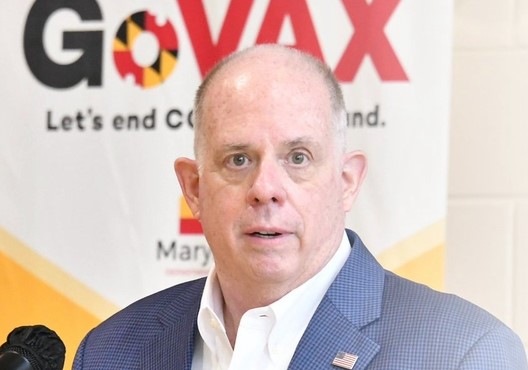
Per the State of Maryland:
ANNAPOLIS, MD—Governor Larry Hogan today declared August as Immunization Awareness Month in the State of Maryland, encouraging Marylanders to stay COVIDReady by staying up to date on vaccines and boosters—especially as back-to-school season begins.
Read the governor’s Immunization Awareness Month proclamation.
“The dominant BA.5 subvariant is a reminder of how important it is for Marylanders to stay up to date on vaccines and boosters, as well as routine immunizations,” said Governor Hogan. “Through our COVIDReady Maryland plan, we will continue to maximize all of the available tools and treatments for preventing severe illness, and maintaining a state of readiness so that we are prepared to respond to emerging waves and variants.”
Through the COVIDReady Maryland plan, the state continues to maintain a robust vaccination infrastructure of hundreds of providers. With all the evolving guidance coming from the federal government, state health officials have launched a new “Are You Up-To-Date?” portal that will allow you to check your vaccination status within seconds. Find a vaccination clinic near you, or call 1-855-MD-GOVAX.
In addition, state health officials continue to stress the importance of making sure children receive their recommended immunizations against vaccine-preventable diseases.
Families can view official vaccination records online at MyIRMobile.com, a secure portal where users can access official copies of their records and those of their family members. Back-to-school immunization guidance is available here.
“We encourage all families to get the COVID-19 vaccine or booster during their routine immunizations, an important step in keeping Maryland children strong, healthy, and COVIDReady,” said Dr. Jinlene Chan, Deputy Secretary for Public Health Services at the Maryland Department of Health. “Protect your children and your neighbors by contacting your local healthcare provider, the school nurse, or your local health department to ensure all your child’s shots are up to date.”
To date, the state has administered nearly 12.7 million COVID-19 vaccinations, including more than 3.1 million booster shots. More than 95% of Marylanders 12 and older have received a first dose; 88.9% of Marylanders 12-17 years old and 51.4% of Marylanders 5-11 years old have received a first dose. To date, 7.6% of Marylanders under 5 have received a first dose, ranking third in the nation.
-###-
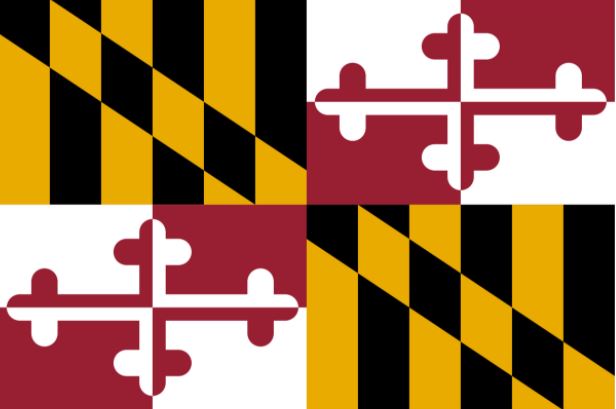
Per the State of Maryland:
Grant Funding Supports High-Impact Projects Across All Maryland Jurisdictions
State Outlines Priorities to Address Overdose Mortality With Final Version of Inter-Agency Opioid Coordination Plan
ANNAPOLIS, MD—Governor Larry Hogan and Maryland’s Opioid Operational Command Center (OOCC) today announced $10 million in block and competitive grant awards to help support programs around the state to address the opioid crisis. The grant funding, which will be distributed between July 2022 and June 2023, will be used to support the Hogan-Rutherford administration’s policy priorities of Prevention & Education, Enforcement & Public Safety, and Treatment & Recovery.
“Our administration has made it a top priority to put the resources and support systems in place at every level to expand access to treatment, and combat the heroin and opioid crisis,” said Governor Hogan. “These grants play a critical role in supporting the local and grassroots work taking place in our communities and health care systems to save lives and promote healing.”
$4 Million For Block Grants to Local Jurisdictions. The OOCC is distributing $4 million through its Block Grant Program, which ensures that all of Maryland’s 24 local jurisdictions receive a base level of funding to support overdose-related programs and initiatives. The program also takes into account local impacts of the opioid crisis and distributes half of the funds proportionally based on overdose mortality rates. These funds are distributed directly to local jurisdictions and will be administered by local health departments. The full list of programs that are being supported is available here. The biggest recipient of these grants is Baltimore City, which will receive $873,775 to support overdose response programs and teams. Baltimore County will receive $374,340 to provide continued support for peer recovery services, and Anne Arundel County will receive $256,976 to provide continued support for Safe Stations, as well as community and faith-based organizations.
$6 Million For Competitive Grants. The OOCC’s Competitive Grant Program will distribute an additional $6 million to fund 38 of the highest-scoring proposals received from over 90 state, local, and private community-based organizations. The final list of competitive grant awards is available here. Out of the grants awarded, 19 will be distributed to private and nonprofit organizations, and 19 will be distributed to state and local government agencies. Examples include:
- $396,090 to the University of Maryland to support data collection for fentanyl testing in Maryland hospitals.
- $260,233 to the University of Maryland Capital Regional Health to support expansion of SBIRT (Screening, Brief Intervention, and Referral to Treatment)
- $79,770 to MedChi to support distribution of and training for at-home drug deactivation and disposal systems.
- $148,607 to Anne Arundel Medical Center to support co-occurring mental health and substance use disorder treatment, behavioral health workforce development, training in SBIRT, and care coordination services.
- Several county school systems will receive grants to support youth-based prevention programs, including Howard ($233,250), Worcester ($113,360), Talbot ($80,000) and Carroll ($22,100).
- Grants for enforcement and public safety programs that support peer recovery and treatment services include $206,909 for Allegany County, $107,261 for the Washington County Sheriff’s Office, and $69,615 for the Baltimore County Circuit Court.
“We are honored to support so many great projects for the year to come,” said OOCC Executive Director Robin Rickard. “Each of these programs will make an enormous impact for those living with the disease of addiction, from early prevention efforts to lifting people up on their recovery journey.”
Additional Awards Announced Last Month. In addition, last month, the OOCC announced an additional $7.5 million in grant awards to support local jurisdictions with implementing the requirements of the Opioid Use Disorder Examination and Treatment Act of 2019. This legislation requires that all local detention centers implement programs to screen incarcerated individuals for opioid use disorder, offer peer recovery specialist services and counseling services to develop re-entry plans for individuals upon release, and to offer all three FDA-approved formulations of medications for opioid use disorder, such as methadone or buprenorphine, in their facilities. The grant awards will support projects in 16 local detention facilities, a summary of which can be found here.
Opioid Restitution Fund. The OOCC anticipates being able to offer more available grant funding in the coming months through the Opioid Restitution Fund, which was established to administer all funds received at the state level from legal settlements involving prescription opioid manufacturers and distributors. The State of Maryland is expected to receive approximately $400 million from settlements with Johnson & Johnson and three prescription opioid distributors over the next 18 years.
Final Inter-Agency Opioid Coordination Plan. In addition, the OOCC released the final version of Maryland’s Inter-Agency Opioid Coordination Plan for 2022–2024. The plan details goals and strategies for reducing overdose-related morbidity and mortality in Maryland. The plan was recently completed following a public comment period, during which time the OOCC received and considered input from dozens of Maryland residents. The plan identifies eight goals to support the overarching goal of reducing overdose-related morbidity and mortality in Maryland, which include:
- Improving Statewide Infrastructure for Opioid Initiatives
- Promoting Youth Resiliency
- Increasing Awareness of Substance Use Disorder
- Expanding Harm Reduction Services across Maryland
- Promoting Comprehensive Care Coordination
- Expanding Maryland’s Crisis Response System
- Expanding Access to Evidence-Based Treatment for Opioid Use Disorder
- Supporting Recovery Communities
The final coordination plan is available here.
-###-

Per Tree of Hope Association:
Rockville, MD, July 19, 2022 – Tree of Hope Association, a non-profit committed to support, education and advocacy for the recovery community, will open its doors as Montgomery County’s first SUD Recovery Community Drop-in Center at its Grand Opening on July 28, 2022.
“Tree of Hope was born out of a passion to bring hope and healing to those who struggle with addiction and the stigma of recovery, and a commitment to provide those in the recovery community with the support and resources they need to succeed as productive, contributing members of their communities” says LaTonia Rich, Executive Director of Tree of Hope Association.
Meghan Westwood, Executive Director of Maryland Treatment Centers and a long-time partner of Tree of Hope states that, “Maryland Treatment Centers has had the honor of partnering with Tree of Hope for years to ensure that people in early recovery understand their courage, resiliency and value to the community. Tree of Hope has been a leader in peer leadership for those in recovery from drug and alcohol addiction, and has made incredible strides in combating the stigma that poses such a barrier to success. This new drop-in center will be a welcoming place to go, without judgment, to find like-minded individuals, with lived experience, to provide mentorship and support. Under the leadership of Latonia and Bunny Rich, Tree of Hope has created the gold standard in recovery support services.”
Attendees: Judge Nelson Rupp, Montgomery County Drug Court Judge; Dr. Raymond Crowell, Director, Department of Health and Human Services, Montgomery County, MD: Meghan Westwood, Executive Director of Maryland Treatment Center; Tholyn Twyman, US State’s Attorney’s Office; Jimmy Frazier-Bey, Executive Director of Wells Robertson’s House. Montgomery County Councilmen Sidney Katz, Andrew Friedson, Evan Glass and Will Jawando.
Tree of Hope has worked closely with community organizations in support of improving the lives of those in early recovery and their families. Montgomery County Drug Court Judge Nelson Rupp spoke in support of Tree of Hope’s mission, “As one of the founders of the Adult Drug Treatment Court for the Circuit Court for Montgomery County, Maryland, I am thrilled to learn of the opening of the Tree of Hope Recovery Center. This drop-in center fills a glaring need in our community. Overcoming the disease of addiction is hard work and requires commitment, dedication and discipline. It can’t be done alone. But even with significant support to get clean and sober, remaining clean and sober continues to be a challenge. The obstacles to employment, health care and housing are overwhelming and can easily result in frustrations that lead to relapses in recovery. By providing these core services to people new in recovery, the Tree of Hope Recovery Center provides essential support to those who are working hard to become contributing members of our community.”
Tree of Hope Recovery Center Community Grand Opening will take place Thursday, July 28 at 5:00pm in their new offices at 30 Courthouse Square, Rockville, MD 20850.
Tree of Hope Association was founded in 2014 to educate and advocate for individuals in the recovery community. It provides a connection to community resources and importantly a more wholistic continuum of care – empowering those in recovery to lead lives filled with meaning and purpose.
